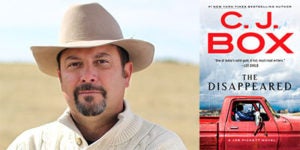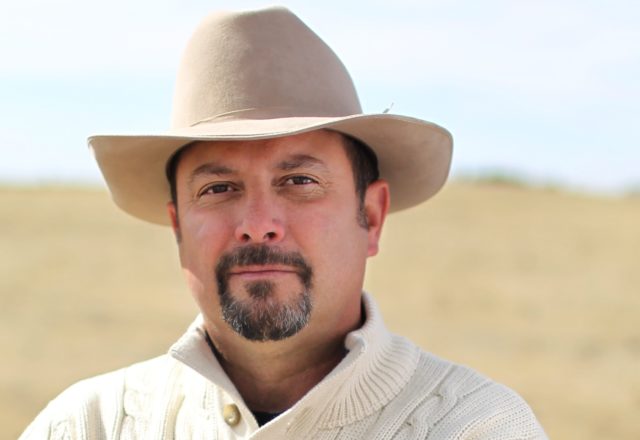How Putnam Mystery Writer C. J. Box Wrangles Western Myth and Modern Reality
 #1 New York Times bestselling author C.J. Box takes his storytelling to new levels in his 18th Joe Pickett novel, THE DISAPPEARED, published by Putnam on March 27. Branded “one of today’s solid gold, A-list, must-read writers” by fellow Penguin Random House author Lee Child, Mr. Box has a remarkable ability to evolve his core characters – game warden Joe Pickett, his wife Mary Beth, their children, and friend Nate Romanowski – while introducing vexing mysteries, unexpected dilemmas, and multi-dimensional forces of nature.
#1 New York Times bestselling author C.J. Box takes his storytelling to new levels in his 18th Joe Pickett novel, THE DISAPPEARED, published by Putnam on March 27. Branded “one of today’s solid gold, A-list, must-read writers” by fellow Penguin Random House author Lee Child, Mr. Box has a remarkable ability to evolve his core characters – game warden Joe Pickett, his wife Mary Beth, their children, and friend Nate Romanowski – while introducing vexing mysteries, unexpected dilemmas, and multi-dimensional forces of nature.
In THE DISAPPEARED, Joe Pickett has two cases to contend with: a prominent female British executive never came home from the high-end guest ranch she was visiting, and the British Embassy as well as the new governor of Wyoming are pressing hard. At the same time, Nate Romanowski has asked Joe to intervene with the feds on behalf of falconers who can no longer hunt with eagles even though their permits are in order. Both cases are fraught with frustration, danger, and potentially lethal consequences.
In this “Meet Our Author” interview, C.J. Box talks about his writing process, how he creates such authentic “bad guys,” and the inspiration behind THE DISAPPEARED.
How would you describe your writing regimen – in terms of place, time and routine?
After doing the research and developing a fairly comprehensive outline, I write at least five days a week in my office and establish a goal of a minimum of a thousand words a day. Sometimes I double or triple that. I start each day editing the raw work from the previous day and then proceed from there. I’m a morning worker and after working out and breakfast I walk from our house to a big barn on our ranch. My office is located above the barn so I have views of the mountains, eagles, and often pronghorn antelope and mule deer. Plus our horses. If I notice the scenery, though, that means I’m not working. So I try to keep my head down.
What accounts for your ability to create so many truly scary but believable villains in your books?
I think there’s sometimes a tendency in crime fiction to make the bad guys bad in every conceivable way. I try to avoid that by providing a backstory and (most importantly) motivation for why the bad guys do what they do. I think that helps make them both believable and even more scary because the reader can empathize (a bit, at least) with them. There are instances where Joe Pickett even understands why his antagonist is dangerous and feels sorry for them a little. I guess I’m the same way.
With THE DISAPPEARED, you introduce several new plot twists and characters that may surprise your readers. Where did the inspiration for these creations come from?
Prior to my books taking off, I worked for over twenty years in the international tourism industry on behalf of five Rocky Mountain states. Part of our job was to promote western experiences to Europeans and others. Dude ranch holidays were particularly popular in the United Kingdom and especially among professional women. I found that fascinating – that very urban women wanted to spend a week or two in the modern west. Part of the appeal, we found, was that a significant number of these women wanted to hook up with a young cowboy. And it happened quite often. That phenomenon was the basis for the new book, where a well-known female executive disappears after visiting a very high-end dude ranch.
A luxury “dude ranch,” Silver Creek, figures in the plot of this novel. As a native of Wyoming, do you witness any real-life contention between the intrusion of rich outsiders that such properties bring and the longtime locals?
The interaction between wealthy dude ranch guests and locals is a source of fascination to me. Some guests try to pretend they’re cowboys and cowgirls, and some locals play up being natives to the point of caricature. I’ve seen romances develop between overseas visitors and young local wranglers, and I know of a few women who chose to stay with their young cowboy rather than go home. It’s an intersection between western myth and modern reality.

